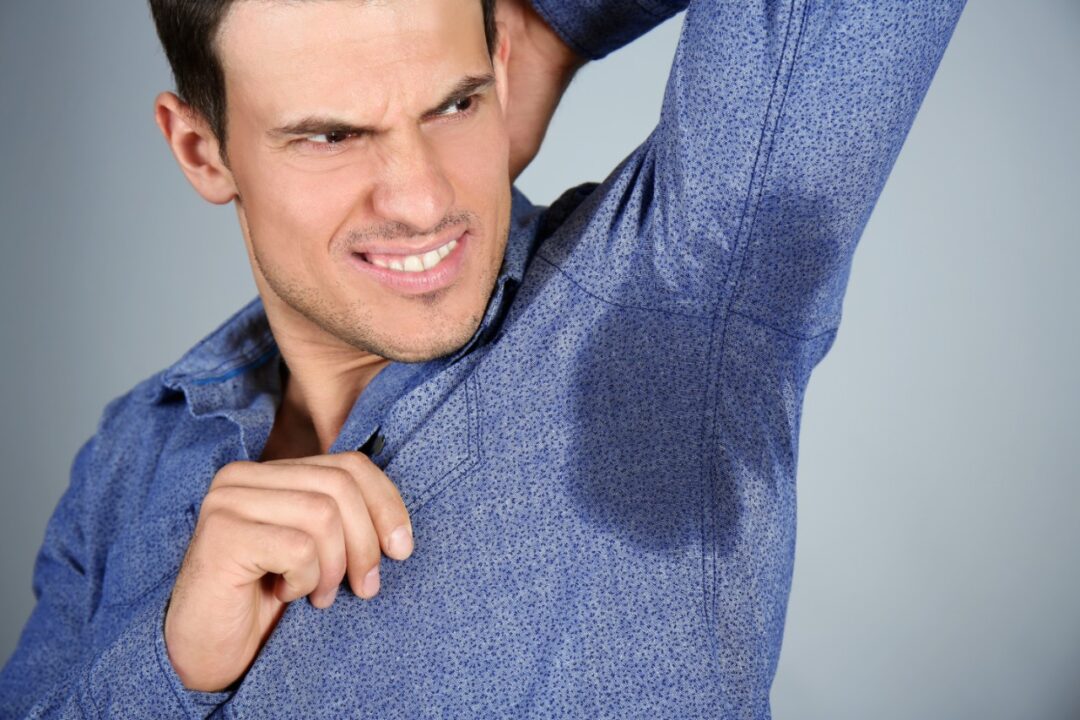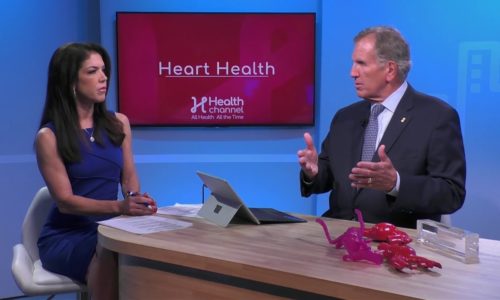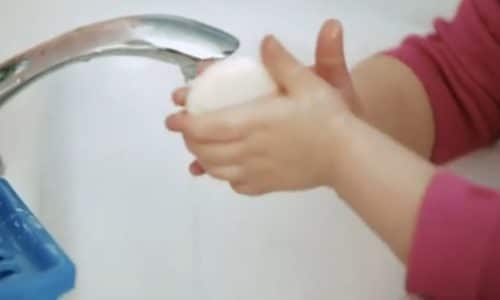Is my sweat normal? |

Sweating is a physiologic process whose primary purpose is to help with regulation of body temperature. People normally sweat more profusely when it’s hot outside or when exercising. People also sweat more in response to situations that make them nervous, angry, embarrassed, or afraid. In an estimated 2 to 3% of Americans, however, sweating can be so excessive that it disrupts normal activities. Sweating of this severity is known as hyperhidrosis. Hyperhidrosis may be present if you have any of the following:
- Excessive sweating of the soles and palms that causes clammy hands and unpleasant foot odor.
- Profuse sweating that soaks through clothing
- Sweating that results in a skin problem such as a fungal rash or prickly heat
- Sweating that occurs at night or when the ambient temperature is normal
What causes excessive sweating? Hyperhidrosis can be primary or secondary. Primary hyperhidrosis is the most common type. It most often affects people who are otherwise healthy with excessive sweating involving the feet, hands, head, and underarms. Secondary hyperhidrosis has an underlying cause, such as hormonal changes (e.g. menopause), anxiety, an overactive thyroid gland, excessive caffeine consumption, certain medications, and with some types of infection and cancer.
What can be done for hyperhidrosis? When hyperhidrosis is secondary to some other problem, the most effective treatment is to address the underlying cause. For example, if an overactive thyroid is responsible, addressing this condition should take care of the problem. In instances where there is no known cause, treatment usually follows a stepwise progression:
- Over-the-counter (OTC) antiperspirants. These are usually tried first since they are readily available and fairly inexpensive. Most antiperspirants have an aluminum-based compound as their main ingredient, which works at the level of the sweat glands to decrease sweat production. This distinguishes antiperspirants from deodorants that merely block odor.
- Prescription antiperspirants. When an OTC antiperspirant is insufficient, use of a prescription antiperspirant may be considered. These also contain aluminum compounds, but at a higher concentration than the OTC products. Xerac and Drysol (aluminum chloride hexahydrate) are two of the most common prescription antiperspirants. These products are most appropriately used to prevent underarm sweating. Since they can be irritating and staining to clothing, they are typically applied before bedtime. After several nights of use, the prescription antiperspirant is then applied only once or twice weekly to maintain the effect.
- Iontophoresis. This treatment is best applied to hyperhidrosis affecting the hands and/or feet. It involves the use of a device that passes electricity through the skin while the affected appendages are immersed in water. While its mechanism of action is unclear, it has been used successfully for years. The procedure is painless, and typically takes anywhere from 10 to 20 minutes.
- Botox (botulinum toxin). Botox has been approved by the FDA for use in excessive underarm sweating. It works by blocking the nerves that trigger the sweat glands. Treatment involves the delivery of multiple injections, usually performed by a Dermatologist, into the armpit which can provide up to 6 months of benefit. As expected, the treatment can be uncomfortable, but side effects are uncommon.
- Oral medications. The most commonly used medications for managing hyperhidrosis are anticholinergics. Robinul (glycopyrrolate) is one of the most commonly prescribed of these. In addition to dry mouth, these medications can cause a number of side effects including constipation, blurry vision, urinary retention, loss of taste, dizziness and confusion. Other classes of medications occasionally used include beta blockers (e.g. propranolol) and benzodiazepines (e.g. Valium). These medications work primarily by “blocking” the physical manifestations of anxiety.
- Surgery. Surgery is the treatment of last resort and is only considered in cases of severe hyperhidrosis when other treatments haven’t worked. The two primary surgical options are 1) removal of the sweat glands themselves or 2) sympathectomy, a procedure in which the nerves that activate sweat glands are destroyed.
Are self-care measures helpful for excessive sweating? There are a number of things that you can do to reduce sweating and associated body odor. The first is to bathe daily with an antibacterial soap. Be sure to dry yourself completely after bathing, since odor-causing bacteria thrive in a moist environment. Antiperspirants are most effective when applied near bedtime when sweating is minimal. Whenever possible, wear natural fabrics, such as cotton, wool or silk. These help to allow the skin to breathe. When exercising, one of the newer wicking fabrics will help to move moisture away from the skin. Wear shoes that are made of breathable material, such as leather, and socks made from cotton or wool that will absorb moisture. For many people, it is best to avoid certain foods or drinks, such as alcohol, spicy foods and caffeine, since these can contribute to sweating. If your sweating is precipitated by anxiety or stress, engaging in relaxation exercises may be helpful.
Sources for article:
Hyperhidrosis from the American Academy of Dermatology
What’s in Your Antiperspirant? from WebMD
Medications from the International Hyperhidrosis Society
If you have any more questions just Ask Hanna, our health advisors are here to help.
Image: ©Shutterstock / Africa Studio








